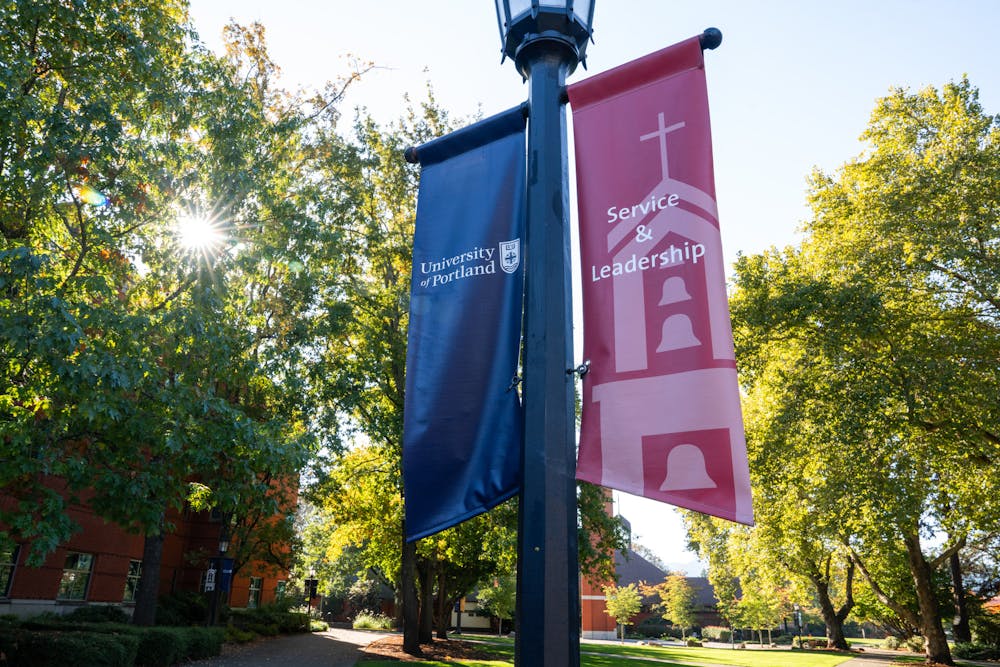A monumental Supreme Court decision this last June effectively ended race-based affirmative action in the college admissions process after two cases involving Harvard College and the University of North Carolina at Chapel Hill’s admissions programs were considered unconstitutional.
The ruling was controversial as bills banning DEI-related programs and practices are being passed throughout the country.
Despite the decision, Vice President for Enrollment Management Mai Nhia Xiong-Chan, who oversees undergraduate recruitment and the Office of Financial Aid, says it doesn't affect UP’s admissions process.
“As far as I understand it, it [race] has not been a factor that has made a decision whether a student is eligible to enroll at our institution or not,” Xiong-Chan said. “The University of Portland is a selective college, but our selectivity is not at the rate that it is at, let's say, a Harvard or Yale. When you're looking at a school that's only admitting 4% of their applicants, they're splitting hairs.”
Take this example: Two students apply to a selective college. They both have the same academic profiles and have an extensive list of extracurricular activities — selective colleges like Harvard then have to look for a factor to admit one over the other.
Before the Supreme Court decision, that factor was often race. Even though race-based affirmative action was used for the purpose of increasing the representation of racial minorities at selective institutions, white and asian students remain overrepresented.
Xiong-Chan says that UP’s admissions process is holistic, taking into consideration a plethora of factors before a student can be accepted.
“Here's University of Portland: If we get two students who both have 4.0 GPAs, have extracurriculars, things [that] just make them good students in their own right, we don't split hairs,” Xiong-Chan said. “We accept both of them.”
While colleges and universities are not allowed to consider race as a factor in the admissions process, applicants are still allowed to talk about race in other parts of their applications. At UP, this can be done in the optional essay portion of the application.
“I absolutely support students who would like to share more about how their racial or ethnic identity has positively or negatively impacted their experiences within the essay section of an application,” Xiong-Chan said. “In a way, you can't separate your racial identity from your own experiences. So when they're telling us about an experience they had during a study abroad trip in high school or a lab project that they worked on, if it [race] becomes a part of it, that to me just seems natural. We welcome that.”
Following the release of the Supreme Court decision, the Department of Justice and Education released legal guidelines and methods that colleges and universities could follow to promote a diverse pool of applicants which included targeted outreach, recruitment, and pipeline or pathway programs.
Xiong-Chan said that UP is currently pursuing all those options. However, based on her own identities and past experiences working enrollment management, she believes that UP could be better on outreach specifically.
“One of the greatest barriers to higher education is just the access point,” Xiong-Chan said. “Many times this is not recruiting, it’s outreach. We actually need to do better outreach as colleges, to younger students, like middle school students and even into these communities that have not had a lot of access.”
Another way UP could reach underrepresented groups, according to the Department of Justice and Education legal guidelines, is to increase its amount of Pell Grant recipients or first-generation students.
This fall, 21% of all-degree seeking undergraduates were Pell-eligible and 30% of all-degree seeking undergraduates were first-generation — the highest both demographics have been in almost nine years at UP.
“In the face of the affirmative action decision, University Portland, we recommit ourselves to make sure that we are intentional about recruiting students of diverse ethnic and racial backgrounds,” Xiong-Chan. “We want to make sure that we are intentional and still committed to diversity and diverse classes of students.”
Kimberly Cortez is the Diversity, Equity & Inclusion Editor for The Beacon. They can be reached at cortez25@up.edu.








